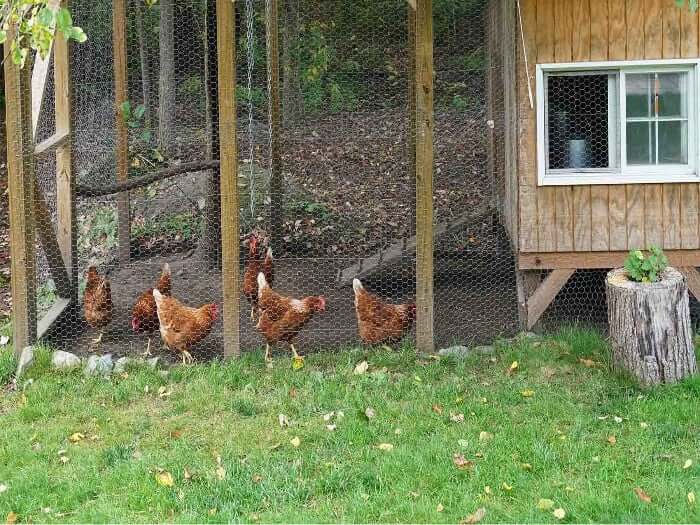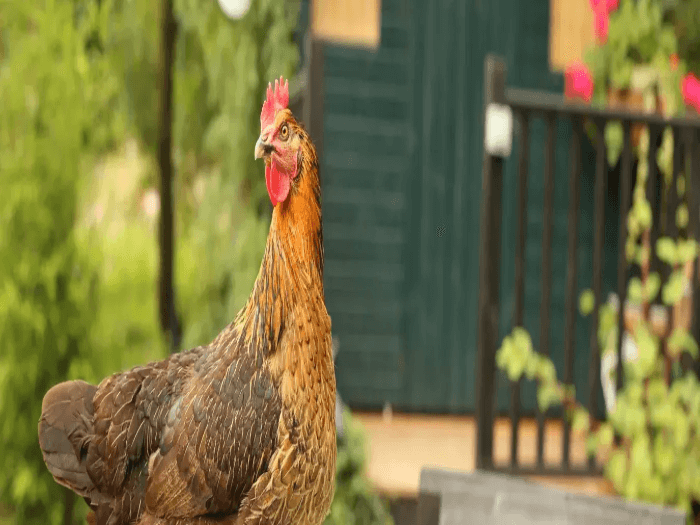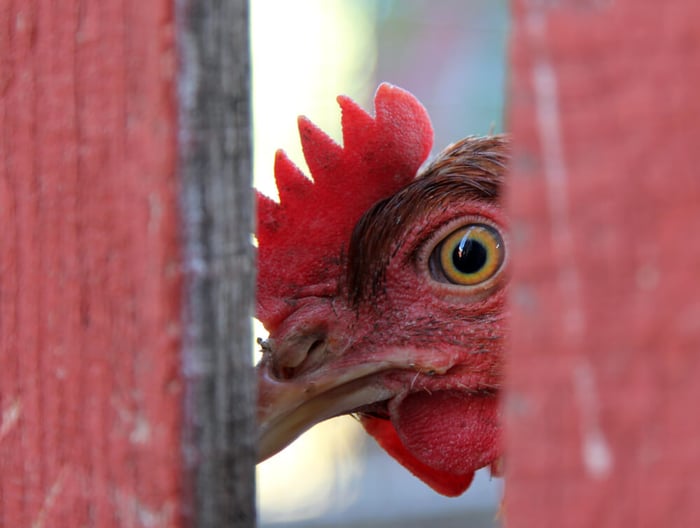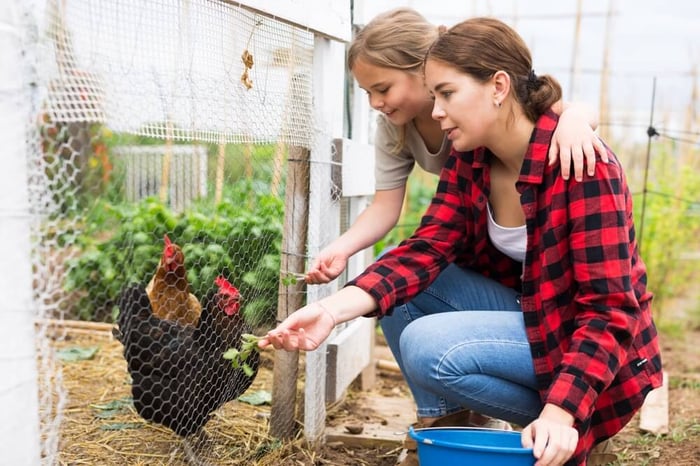Table of Contents
- Why Are Backyard Chickens in Suburbs So Popular Right Now?
- Check Local Laws: The First Step
- Design a Neighbor-Friendly Chicken Coop
- Managing Noise: The Biggest Neighbor Concern
- Building Good Neighbor Relations Through Communication
- Daily Care That Affects Neighbors
- Benefits of Backyard Chickens for the Community
- Best Chicken Breeds for Suburbs
- Sustainable Practices for Suburban Chicken Keepers
- Final Thoughts: Flock and Community
- FAQs
In recent years, raising backyard chickens in suburbs has become super popular. From fresh eggs to natural pest control, suburban chicken keeping is a win-win. But it also comes with challenges, especially when it comes to neighbors. If you’re thinking of adding a flock to your suburban yard, knowing how to keep the peace while enjoying your chickens is key.
Why Are Backyard Chickens in Suburbs So Popular Right Now?
The appeal of backyard chickens in suburban settings goes beyond just having fresh eggs. Many suburbanites are motivated by sustainability, self-sufficiency and a desire to get back to nature. Chickens provide a steady supply of organic eggs, eat bugs and help with pest control and their manure can be composted to enrich garden soil. Plus, chickens are great companions and a unique charm to any backyard.
But suburbs come with close neighbors and community rules so you need to balance your chicken keeping enthusiasm with neighborhood harmony.
Check Local Laws: The First Step
Before you start your flock, the most important step is to check local laws and ordinances. Many suburbs have specific rules about backyard chickens including:
Are chickens allowed at all
How many birds
Roosters (often not allowed due to noise)
Coop size and placement
Permit or fee required
For example, some cities require a backyard flock permit and specify how far coops must be from property lines. Nashville, Tennessee requires permits and no roosters, while other cities may not allow chickens at all or have very limited allowances.
Because rules vary widely, anyone planning to keep backyard chickens in suburbs should carefully check local ordinances to avoid fines or neighbor disputes.
If your suburb doesn’t allow chickens, consider advocating for change by attending local meetings or supporting community efforts to allow backyard flocks. Meanwhile, volunteering at local farms or rescues can give you chicken experience.
Design a Neighbor-Friendly Chicken Coop
A well designed coop is key to keeping both your chickens happy and your neighbors happy. Here’s what to consider:
Cleanliness: Clean coop prevents odors and health issues. Remove droppings regularly and replace bedding with materials like pine shavings or straw that absorb moisture and compost well.
Odor Control: Proper ventilation and frequent cleaning keep smells to a minimum. Composting chicken manure and soiled bedding is a great way to manage waste sustainably.
Predator Proofing: Secure your coop with wire and locks to keep out raccoons, rats and neighborhood pets.
Coop Location: Place the coop in a shaded, out of sight area away from neighbors’ windows or common outdoor spaces. Check local setback rules to comply.
Size and Run: Give your chickens enough space to roam safely. A bigger run reduces stress and noise which benefits your flock and neighbors.
An attractive, tidy coop that blends with your backyard landscaping can also ease neighbors’ concerns about aesthetics. When designing a coop for backyard chickens in suburbs, it’s important to consider aesthetics and odor control to keep neighbors happy.
Managing Noise: The Biggest Neighbor Concern
Noise is often the number one issue neighbors have with suburban chickens. While hens are generally quiet, roosters can crow loudly and early and disturb the peace. Many suburbs prohibit roosters for this reason.
If you want to avoid noise complaints:
Keep hens only and no roosters.
Locate the coop away from neighbors’ bedrooms or gathering spots.
Interact calmly with your chickens to keep them relaxed and less noisy.
Consider using sound barriers like shrubs or fencing around the coop.
Building Good Neighbor Relations Through Communication
Open communication is key to peaceful coexistence. Here’s how to foster neighborly goodwill:
Tell your neighbors early about your plans to keep chickens.
Explain your commitment to cleanliness, noise control and responsible care.
Invite your neighbors to see your coop and meet your chickens. This can turn curiosity into support.
Address concerns promptly and politely if your neighbors raise issues. Sometimes small changes like moving the coop or increasing cleaning frequency can resolve complaints quickly.
Daily Care That Affects Neighbors
Your daily chicken care routine can impact neighbors more than you think. To minimize disturbance:
Feed and tend your chickens during reasonable hours, not early morning or late evening.
Keep feed in sealed containers to prevent attracting rodents or pests.
Check regularly for and address any pest issues around the coop.
Benefits of Backyard Chickens for the Community
Raising backyard chickens in suburbs can foster community interest and promote sustainable living practices. When done well, backyard chickens can be a positive addition to suburban neighborhoods:
They provide fresh, organic eggs that reduce reliance on store bought products.
Chickens help with garden pest control.
They can be a community interest, sparking conversations and shared enjoyment.
Responsible chicken owners often inspire others to try sustainable practices, strengthening neighborhood bonds.
Common Issues and How to Fix Them
Things will go wrong: Issue Solution Odor complaints Clean more often, improve ventilation, compost manure properlyNoise disturbancesNo roosters, move coop, use natural sound barriersPest attractionStore feed securely, keep clean, use predator-proof coop designLegal restrictionsResearch local laws, get permits, advocate for change if neededNeighbor oppositionTalk openly, invite neighbors over, address concerns politely Being proactive helps.
Best Chicken Breeds for Suburbs
Some breeds are better for suburbs due to temperament and noise. Quiet, friendly breeds like Silkies, Buff Orpingtons and Plymouth Rocks are popular suburban choices. These breeds are calm, good for families and less noisy.
Sustainable Practices for Suburban Chicken Keepers
Sustainability is a big reason for suburban chicken keeping. Try:
Natural, non-GMO feed or make your own layer feed.
Compost chicken manure and bedding to enrich your garden soil.
Use sustainable bedding like processed coffee grounds or hemp.
Collect rainwater for chicken waterers to conserve resources.
- These help the environment and show you’re a responsible neighbor.
Final Thoughts: Flock and Community
Backyard chickens in suburbs is a great way to have fresh eggs, sustainable living and backyard animals. But it requires planning, respecting local laws and thinking about neighbors.
By:
Knowing and following local laws,
Designing a clean, quiet and attractive coop,
Talking to your neighbors,
Managing noise, odor and pests proactively,
- you can have your flock and keep the peace in your community.
Backyard chickens can be a nice addition to suburban life—enjoyed by your family and potentially your neighbors too when done right.
FAQs
Are backyard chickens allowed in suburban neighborhoods?
It depends on your local laws. Many suburbs have rules about whether chickens are allowed, how many you can keep, and if roosters are permitted. Always check your city or town’s ordinances before starting your flock.
How can I keep my chickens from bothering my neighbors?
Keep hens only (avoid roosters), place the coop away from neighbors’ windows, maintain cleanliness to prevent odors, and communicate openly with neighbors about your chicken-keeping plans.
What’s the best way to design a chicken coop for a suburban backyard?
Choose a clean, well-ventilated coop that’s predator-proof and blends with your yard’s landscaping. Make sure it’s located in a shaded, discreet spot and large enough for your flock to roam comfortably.
How often should I clean the chicken coop?
Regular cleaning is essential to control odors and pests. Remove droppings frequently and replace bedding materials like straw or pine shavings to keep the coop fresh.


.png)




